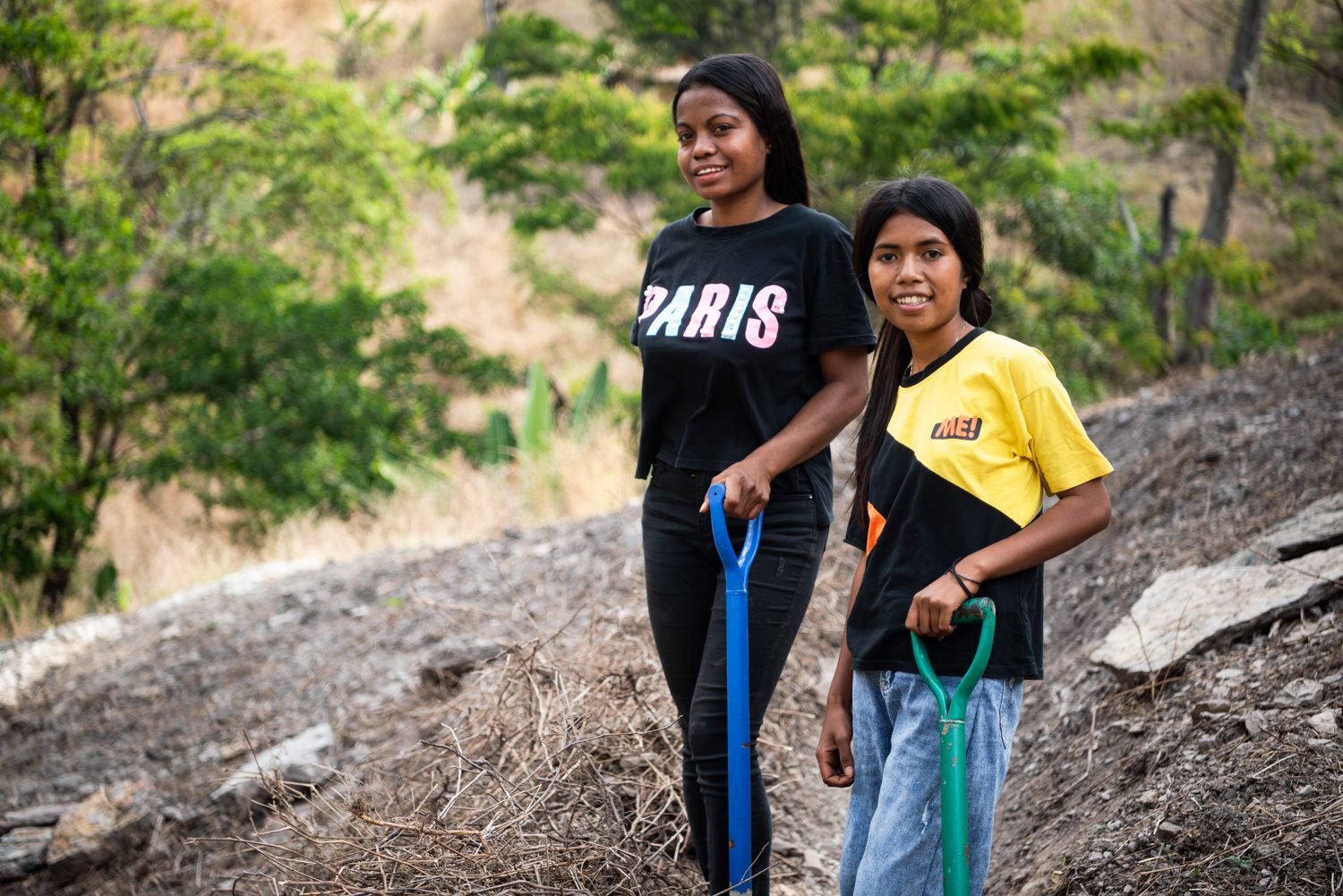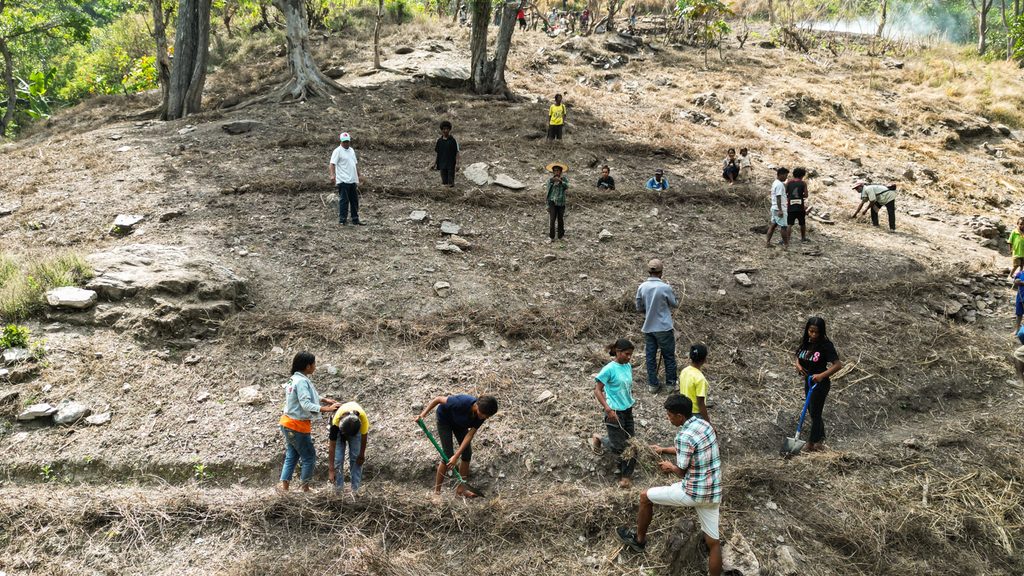Teresa’s plan to strengthen girls’ adaptability to climate change
4 April 2024Teresa has a plan. It is to strengthen girls' adaptability to climate change and reduce youth poverty in Timor-Leste.

Fifteen-year-old Teresa lives in a village in Timor-Leste, a country that has experienced food shortages caused by very dry conditions resulting from El Niño.
The village has faced increasing challenges in recent years due to a combination of deforestation, rugged topography and extreme weather. The result is a degraded landscape with poor water, soil and nutrient cycles, making it difficult to raise crops and sustain livestock.
Teresa and her family are part of the 80 percent of Timor-Leste’s rural population. Their village is far away from the major city Dili and its local market. The lack of access to a market means the village has relied on subsistence agriculture, where most of the produce is needed by the farmers’ family, with little produce available to sell or trade.
But things are changing in Teresa’s village, and Teresa is one of the leaders of the change. Her favourite subjects in school are English and Maths but she and her classmates are also learning about water conservation. Teresa is sharing that knowledge and working with her community to protect its supply of water, which enables crops and livestock to thrive.
Growing food for better physical and financial health
“We planted trees at the water source that we have been conserving. By doing this, it can prevent landslides that can destroy our water source,” Teresa explains.
“Also, we can fertilise soil for our plantation whenever we need. We can grow potatoes, taro and casava,” she adds.
Teresa’s community now has surplus produce. “During harvesting time, we always bring food to sell in the local market in Dili and some we use for our daily food,”.
“The community is very happy,” Teresa shares. “Now we can guarantee sustainable water for our daily needs during the dry season. We plant vegetables and other crops, and now our garden is always green.”
Every month, once the village receives money from selling vegetables, it saves a portion to a shared fund and then directs spending towards water supply maintenance.
Teresa is developing her skills and confidence to talk in public. “Now, I no longer feel afraid to stand in front of the public, or in front of project staff, like before,” she says.

As a leading participant in the initiative, she takes her responsibility seriously, “the sustainability of this program is counting on my participation. I feel happy when participating in this program. Together, we can make this happen.”
Gaining financial skills has sparked in Teresa the drive to seek her own financial independence and to share her knowledge. Estimates say it will take more than 130 years for the world to achieve gender equality but girls and women like Teresa are promoting gender equality now, which will help to beat the clock.
“Men and women are different but women also can do a man’s job, men and women have the same value in all aspects, “she asserts.
“I have a dream to become one of the field project staff in this programme. I want to challenge young people to learn a lot to increase our knowledge,” she says.
Support from Plan International
Teresa took part in a project run by Plan International Australia and implemented in partnership with Plan Timor-Leste and its local partner, Permatil. Known as Hakbi’it Joventude, which translates as ‘Empowering Youth’, the programme aims to improve agricultural productivity and resilience in communities in Timor-Leste.
Hakbi’it Joventude is focussed on expanding women’s and young people’s knowledge and skills in regenerative agricultural and horticultural practices and water resource management, building greater agency, creating livelihood opportunities, improving health and nutrition outcomes, and increasing community resilience to unpredictable climate and weather events.
An impressive 4,954 local tree varieties were planted in five villages in Aileu and Ainaro as part of reforestation efforts to improve water resource management and environmental conservation.


